The winery August Kessler is located in Assmannshausen in the Rheingau, in the middle of the UNESCO World Heritage Site. It is member of the Association of German Predicate Wine Estates (VDP). The total vineyard area comprises 33 hectares of vineyards with exclusive VDP.ERSTE LAGEN® and VDP.GROSSE LAGEN®. August Kesseler focuses on the production of high-quality Pinot Noirs and Rieslings and is rated with 4 stars by the “Gault Millau” wine guide.
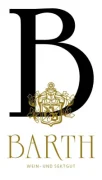
Wein- und Sektgut Barth is a family estate in the Rheingau, founded in 1948 and a proud member of the VDP. The winery cultivates prestigious vineyard sites such as Hattenheim Hassel and Hallgarten Hendelberg. A pioneer in the German sparkling wine scene, Barth is renowned for producing sekt using traditional bottle fermentation. It was also the first VDP member to introduce single-vineyard sparkling wines from VDP.ERSTE LAGE® and VDP.GROSSE LAGE®. The estate operates organically, with a commitment to elegance, origin, and authenticity in both still and sparkling wines.

Situated in the picturesque village of Schweigen, directly on the border with Alsace, Weingut Bernhart is a family-owned estate with approximately 20 hectares of vineyards, two-thirds of which are uniquely located in France but governed by German wine law. Under the stewardship of Gerd Bernhart, the winery has been a member of the VDP since 2004 and is committed to organic viticulture. The estate focuses on producing high-quality, dry wines that reflect their terroir, with special emphasis on Pinot Blanc and Pinot Noir. Notably, their VDP.GROSSES GEWÄCHS® RÄDLING Spätburgunder GG stands at the pinnacle of their offerings.
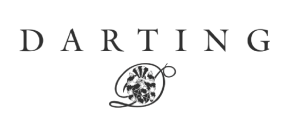
The winery Darting has a history of grape growing dating to 1780. Vineyards in the hills around Bad-Dürkheim are prime sites, planted on south facing slopes of marl and chalky limestone. The winemaker Helmut Darting strongly believes in minimal-intervention winemaking as he feels that “every time you handle a wine, you diminish it.” These practices include fermenting as slow as possible at a cold temperature in stainless steel, using only natural yeasts and avoiding the introduction of oxygen in the winemaking process. Their wines preserve the original grape character and showcase the outstanding vineyards they hail from.
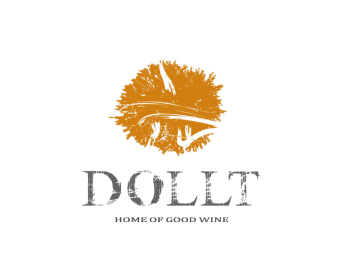
Founded in 2006 by Regina and Thomas Dollt in the village of Flemlingen, Weingut Dollt is a small, family-run estate that blends a touch of madness with a great deal of passion. What began with the spontaneous purchase of a Riesling vineyard has grown into a winery known for its distinctive, joyful wines. Guided by a clear philosophy of character, elegance, and harmony, the Dollts produce wines that range from light and playful to complex and refined. Their Riesling from the red slate soils of the Kastanienbusch vineyard exemplifies the estate’s focus on minerality and precision. The portfolio also includes Grüner Veltliner, Alvarinho, and Dolcetto—each crafted to convey the spirit of the Pfalz and deliver genuine drinking pleasure.
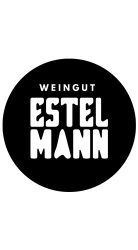
Based in the heart of the Mittelhaardt, Weingut Estelmann is a family business led by
Felix Estelmann alongside his parents, Stefanie and Karl-Ludwig. Their
vineyards lie in some of the region’s finest sites and are cultivated with
respect for nature and terroir. The winemaking philosophy marries traditional
craftsmanship with modern precision, producing wines that range from accessible
estate wines to complex, site-driven expressions. The estate also welcomes
guests at the charming “Loblocher Schlössel,” offering an immersive wine and
travel experience.
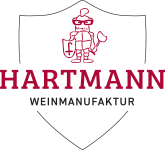
Situated in the heart of the Palatinate region, Weingut Hartmann has been dedicated to
viticulture across multiple generations. The family prides itself on producing wines that embody both personality and a sense of place. Embracing innovation while respecting tradition, they have reimagined their historic family crest to reflect a modern identity. Visitors are welcomed to sample their wines and can opt to stay in on-site holiday apartments.
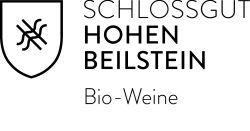
Nestled amidst vineyards in the picturesque Bottwartal, Schlossgut Hohenbeilstein is an organic winery operating under the stewardship of the Dippon family for three generations. The old „Langhans,“ the mighty castle keep dating back to the 12th century, marks the way to the Hohenbeilstein Castle vineyard. A green carpet of vines stretches up the steep slope to Hohenbeilstein Castle. Certified by Naturland since 1992 and a member of the VDP, the estate is committed to sustainable practices, producing high-quality organic wines that reflect their natural environment.
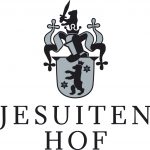
The Jesuitenhof has been a family-owned winery since 1803. From 6.5 hectares of vines at that time, the winery has grown to around 25 hectares today. The most important grape variety is Riesling followed by Pinot Blanc and Pinot Gris for white wine and Pinot Noir for red wine. Through a lot of manual work and a selective hand picking, the quest for quality has been pushed ever further. The vineyards are located in the Dirmsteiner Mandelpfad and Herrgottsacker, Laumersheimer Steinbuckel and Kirschgarten, as well as in the family-owned Jesuitenhofgarten. This location, in the middle of the village, bounded by the former monastery and city walls, is planted with Riesling and Pinot Noir, which represent the top segment in the Jesuit courtyard.
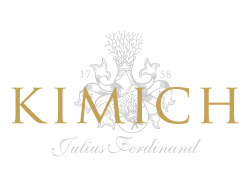
The winery is located directly on the Wine Route in beautiful Deidesheim. Both the landscape and the people here have been shaped by winemaking for centuries. The Kimich family has been rooted in winemaking for over 250 years. The cooper Andreas Kimich came to Deidesheim from Alsace in 1758, married a wealthy widow who owned numerous vineyards, and thus laid the foundation for our winery. Five generations later, in 1949, Joachim Arnold married a daughter of Julius Ferdinand Kimich and took over management a few years later. Today, his son Franz and his son Matthias run the business. Today, the eighth generation produces top-quality wines with a special focus on Riesling made from famous single plots around Deidesheim and Forst as e.g. Forster Ungeheuer.
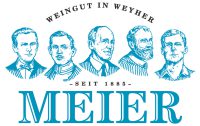
Located in Weyher, in the heart of the Palatinate region, Weingut Meier is a family-owned winery currently led by Georg Meier, who represents the fifth generation. The estate cultivates 20 hectares of vineyards, focusing on Riesling and various Burgundian varieties. Committed to organic farming, the winery emphasises sustainable practices to ensure the longevity and health of their vineyards. Their philosophy blends traditional methods with modern techniques, aiming to produce wines that are both expressive and reflective of their unique terroir.
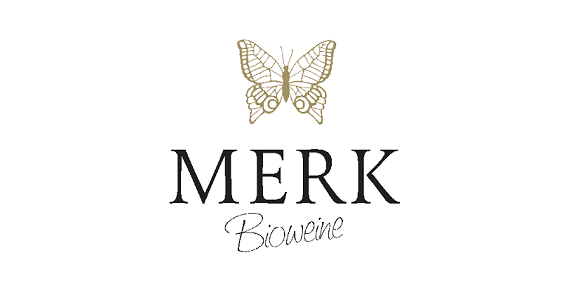
The organic, family-owned wine estate Merk is situated in the Palatinate and run by Gerrit Merk, his mother Rita and his wife Alexandra. It comprises 24 heactares of vineyards. The vines are planted at loamy soil, solely natural fertilizer is applied. The father Walter Merk turned the entire vineyard into ecological/organic production in 1990. The winery is member of the German association of organic products called BIOLAND. This association has established strict regulations of how to cultivate the vineyards and raise the vines. The high quality standards result in yields of 30-40% less than regular wine production. Quality endeavor in harmony with nature is highest aim of the family Merk.
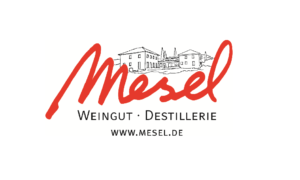
The winery Mesel is located in Germanys second largest wine growing region Palatinate. The brothers Klaus and Stefan Mesel cultivate in total 11 hectares of vines, with Stefan taking care of the 40% red and 60% white grape varieties, and Klaus being responsible for the wine production in the Mesel-winecellar. About 55.000 vines grow on a wide variety of loamy, chalky and sandy soil.
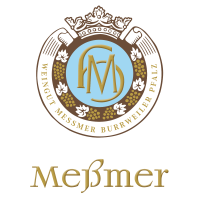
With a history dating back over 240 years, Weingut Meßmer has been family-run since 1960 and joined the VDP in 1997. The estate spans nearly 30 hectares of organically and vegan-certified vineyards situated between 195 and 312 metres above sea level. Riesling is the flagship grape, followed by Pinot Gris, Pinot Blanc, and Pinot Noir. The winery prioritises soil vitality, hand-harvesting, and spontaneous fermentation to produce wines that are honest, expressive, and deeply rooted in their origin.
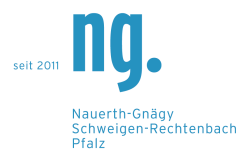
Located in the southern Palatinate near the French border, Weingut Nauerth-Gnägy is a family-run organic estate born from the merger of two long-standing wineries in 2011. Today, the family cultivates around 27 hectares of vineyards, including parcels across the border in Alsace—still under German wine law. The focus is on sustainable viticulture, with great care given to soil health and biodiversity. The estate grows approximately 60% white grape varieties—particularly Riesling and Pinot Blanc—and 40% red, with Spätburgunder playing a leading role. Their wines are known for clarity, varietal expression, and a strong sense of place.
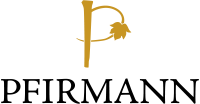
Weingut Pfirmann is a family-run estate that has evolved from a mixed agricultural operation into a dedicated winery. Jürgen Pfirmann, who took over the reins at a young age, leads the winery with a focus on organic practices and minimal intervention in the cellar. The vineyards, located in the Southern Palatinate region, benefit from excellent sites that contribute to the production of wines with distinct character. The estate’s philosophy centres on teamwork and a deep connection to nature, aiming to produce wines that authentically express their origin.
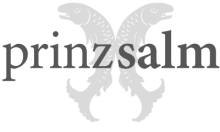
A family tradition spanning 32 generations, cultivating their vineyards for over 800 years. Prince Felix and Princess Victoria now manage the VDP winery. From vineyard work to cellar work to marketing and sales – they work with passion in all areas. Sustainability flows in their veins. Just like the soil, the climate is also a part of their. The vineyards extend to elevations of over 300 meters above sea level. The Hunsrück region provides a cool breeze, allowing the Wallhausen vineyards, in particular, to ripen later and shine with their distinctive characteristics even in warm vintages.
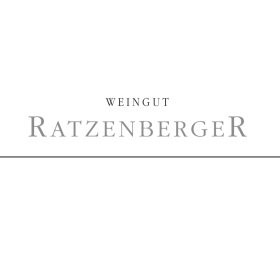
With a history spanning over 300 years, Weingut Ratzenberger is a family- run estate located in the UNESCO World Heritage Upper Middle Rhine Valley. Jochen Ratzenberger leads the winery, focusing on sustainable viticulture and wines with significant ageing potential. The vineyards, characterised by blue slate soils on steep, south-facing slopes, are primarily dedicated to Riesling, which comprises 75% of their cultivation. The estate is renowned for producing authentic, finely structured Rieslings, both dry and fruity, and has a distinguished reputation for its Riesling sparkling wine, crafted using traditional bottle fermentation methods.

Established in 1620, Weingut Wolf has remained a family-owned winery for over four centuries. Currently managed by Klaus and Mathias Wolf, the estate harmoniously blends tradition with contemporary innovation. The vineyards around Birkweiler benefit from diverse soils, including shell limestone, Rotliegendes, and coloured sandstone, providing optimal conditions for cultivating Riesling and various Pinot varieties. This commitment to quality has garnered the winery national and international acclaim.
